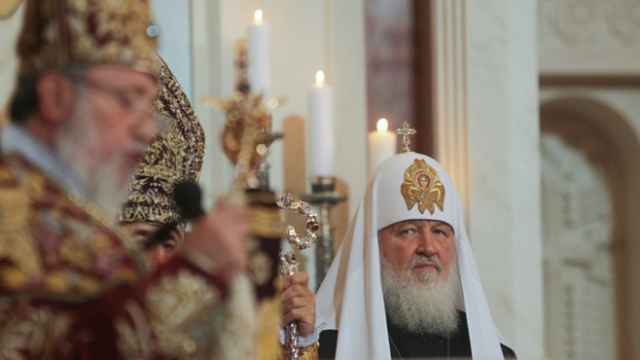Russia's Supreme Court has upheld a controversial prohibition of religious headwear in schools in the republic of Mordovia, RAPSI legal news agency reported Wednesday.
The ruling comes in response to a 2014 decree enacted by the government of Mordovia that also forbid schoolgirls from wearing miniskirts, jeans or low-cut tops, or from having visible piercings, dying their hair unnatural colors, or wearing religious attire — including hijabs.
The decree prompted an outcry from religious activists in the republic, who brought their complaints before the Supreme Court.
According to RAPSI, the legislation was introduced last October after a schoolgirl swallowed a pin used to secure a hijab.
Mordovia's grand mufti, Fagim Shafiyev, criticized the ban for allegedly violating the Russian Constitution and infringing on freedom of religion. Shafiyev had filed a complaint over the move with the republic's prosecutors, but they said there was no legal basis to lift the ban, the Regnum news agency reported.
A Message from The Moscow Times:
Dear readers,
We are facing unprecedented challenges. Russia's Prosecutor General's Office has designated The Moscow Times as an "undesirable" organization, criminalizing our work and putting our staff at risk of prosecution. This follows our earlier unjust labeling as a "foreign agent."
These actions are direct attempts to silence independent journalism in Russia. The authorities claim our work "discredits the decisions of the Russian leadership." We see things differently: we strive to provide accurate, unbiased reporting on Russia.
We, the journalists of The Moscow Times, refuse to be silenced. But to continue our work, we need your help.
Your support, no matter how small, makes a world of difference. If you can, please support us monthly starting from just $2. It's quick to set up, and every contribution makes a significant impact.
By supporting The Moscow Times, you're defending open, independent journalism in the face of repression. Thank you for standing with us.
Remind me later.





